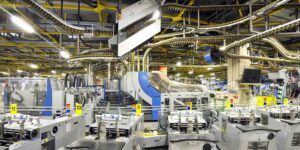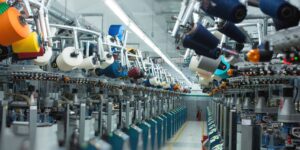The Role of Plant Layout Engineering in Industrial Success Plant layout engineering is essential for facilities across various industries to achieve efficient and productive operations. Through effective plant layout engineering, businesses can achieve significant benefits, such as increased productivity, enhanced safety, and reduced operational costs. This process involves organizing workflows strategically, optimizing space utilization, and…
Read MoreA process improvement engineer plays a pivotal role in enhancing manufacturing efficiency by identifying areas for optimization, implementing effective strategies, and driving continuous improvements throughout the production process. Their goal is to streamline operations, reduce waste, and maximize productivity, all while maintaining quality and minimizing costs. Key Areas of Process Improvement Engineering Identifying Bottlenecks and…
Read MoreAchieving energy efficiency is a critical goal for modern industries, and automated machinery plays a key role in reaching that objective. Automated machines, using advanced technologies like VFDs (Variable Frequency Drives), PLC systems, and real-time monitoring tools, optimize energy consumption while enhancing operational performance. By incorporating intelligent systems, businesses can streamline production, reduce energy waste,…
Read MoreMaximizing efficiency, accuracy, and productivity is critical for industries striving to maintain a competitive advantage. AI-powered automation is revolutionizing industrial processes, providing smarter, more adaptive solutions that reduce the need for human intervention while enhancing overall performance. With artificial intelligence (AI), businesses can automate repetitive tasks, analyze vast amounts of data, and make real-time decisions…
Read MoreContinuous process manufacturing is an uninterrupted production process where raw materials are transformed into finished products in a constant flow of production. Industrial automation in continuous manufacturing is prevalent in industries such as lumber, forestry, manufacturing, and cold storage, where continuous operations are essential for meeting demand and maintaining product quality. In these industries, improving…
Read MorePLC (Programmable Logic Controller) programming has become a cornerstone of automated industrial processes. PLCs are widely used to automate machinery, control systems, and industrial equipment. The ability to customize a PLC system to control complex processes has revolutionized industrial automation, enabling manufacturers to improve productivity, reduce downtime, and enhance the overall efficiency of operations. Crow…
Read MoreMaterial handling involves the movement, protection, storage, and control of materials throughout the production process in industrial and manufacturing settings. It is a crucial element of operations, ensuring the efficient flow of raw materials, components, and finished products between various stages of production. Optimizing material flow with automated industrial machinery is an important part of…
Read More[et_pb_section admin_label=”section”] [et_pb_row admin_label=”row”] [et_pb_column type=”4_4″][et_pb_text admin_label=”Text”]Finding efficient ways of reducing operational costs is crucial for the long-term sustainability of businesses in any industrial or manufacturing application. One of the most effective strategies for achieving streamlined, efficient operations is through process optimization. By fine-tuning workflows, optimizing machinery usage, and improving resource allocation, companies can significantly…
Read MoreWhat is Process Optimization? Process optimization involves systematically enhancing production workflows and equipment usage to boost efficiency, reduce waste, and maximize output with minimal resources. This approach is essential for lowering operational costs, enabling businesses to utilize resources more effectively and minimize inefficiencies. Learn More About Reducing Operational Costs Through Process Optimization
Read MoreManufacturers are continuously searching for ways to boost operational efficiency, reduce downtime, and optimize their production processes. Predictive maintenance has become a powerful solution for achieving these goals by using real-time data to anticipate equipment issues before they arise. By implementing predictive maintenance strategies, manufacturers can enhance productivity, minimize costly disruptions, and extend the lifespan…
Read More









